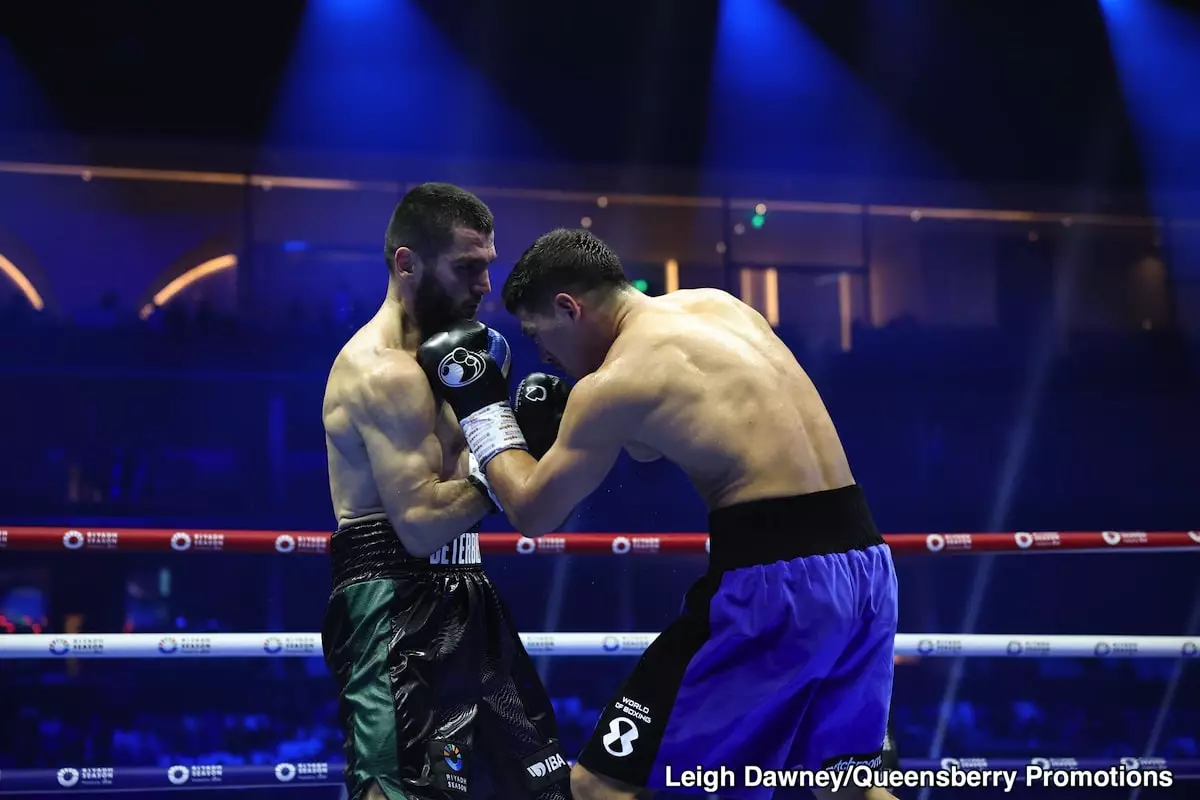On a dramatic night in Riyadh, Artur Beterbiev seized victory over Dmitry Bivol, solidifying his status as the undisputed champion in the light heavyweight division. This bout not only illustrated the evolving dynamics of the two fighters but also revealed the crushing realities of boxing decisions, rematches, and future implications.
When the first bell rang, Beterbiev appeared hesitant, adopting a conservative approach as he navigated Bivol’s initial offensive tactics. The first five rounds showcased Bivol’s consistent strategy to box effectively, showcasing his speed, footwork, and positional awareness. However, the underdog mentality that Beterbiev embraced started to change as the fight progressed. This slow beginning may have been a crucial miscalculation for Beterbiev, as it allowed Bivol to assert control early on, potentially leading fans to prematurely conclude that the fight was settling in favor of Bivol.
Nevertheless, boxing is a sport of adjustments and endurance. As Beterbiev gained confidence, particularly in the sixth round, his performance improved dramatically. He transitioned from a cautious demeanor to an aggressive pursuit. This shift not only altered the momentum of the fight but also brought Bivol’s vulnerabilities to light, with Beterbiev landing powerful shots that visibly affected Bivol.
The pinnacle of the clash emerged in the seventh round, a pivotal segment in which Bivol unleashed a flurry of punches in an audacious bid for victory. In a display of boxing prowess, he connected nine consecutive shots on Beterbiev, appearing to rally the onlookers to his side. However, this surge ultimately proved to be his undoing. Beterbiev responded fiercely, countering effectively and trapping Bivol against the ropes, disrupting his rhythm and leaving him open to substantial punishment. It was here that fans witnessed a psychological shift; Bivol’s earlier dominance transformed into a defensive struggle as he attempted to weather the storm.
This exchange highlights a crucial tenet of boxing: the illusion of momentum can be deceptive. What may seem like the turning point for one fighter can quickly morph into a moment of vulnerability. Bivol’s flurry, instead of cementing his control, exposed his fatigue and susceptibility to Beterbiev’s power shots.
Judging Controversy and Aftermath
The official result, a unanimous decision in favor of Beterbiev, ignited criticism among Bivol’s camp. Bivol’s manager, Vadim Kornilov, expressed intention to file a formal protest, particularly regarding the score delivered by one judge. The range of scores—114-114, 115-113, and 116-112—illustrates the subjective nature of boxing adjudications. Despite these dissenting opinions, the outcome remains: Bivol lost, and the protest may serve only as a fleeting attempt to confront an undeniable reality.
The aftermath of such disputes further emphasizes a deeper narrative within professional boxing, where emotions can cloud objective assessments. In the grand scheme, the fight outcomes hinge less on judges’ perceptions and more on each fighter’s ability to dictate the bout’s tempo and direction.
As the dust settles, both fighters are contemplating the ramifications of their encounter. Beterbiev has openly expressed interest in a rematch, forecasting that, should it occur, Bivol must adapt significantly to avoid repeating past mistakes. Analysts like Gareth A. Davies have echoed these sentiments, calling for Bivol to increase his activity and pressure towards the latter parts of the fight if he hopes to have a chance at redemption.
However, there lies an inherent risk in rematching a fighter like Beterbiev, who possesses a unique blend of power and endurance. Bivol’s path forward necessitates critical self-reflection and rigorous training to fill the gaps highlighted during the championship bout. Moves toward a rematch could reshape the careers of both athletes, each leveraging lessons learned from their initial encounter to elevate their game.
Beterbiev’s victory represents both a personal triumph and a stern reminder of the impositions of circumstance. The dialogues surrounding rematches and protests serve to enrich the narrative in a sport defined by its complexities and conflicts, as both fighters grapple with the consequences of their confrontation in the ring. Fans are left eager for the next chapter, reminding everyone that the story of boxing is always evolving.

